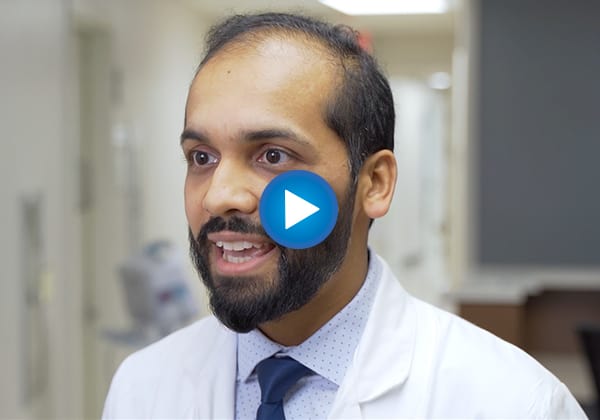![]()
Climate Change's Toll on Public Health: A Wake-Up Call
The Growing Crisis
Climate change has become one of the most concerning environmental and health crises that our world is facing today. It is already affecting everything from our economies and food systems to biodiversity and public health. It is a global problem that affects us all, and the impacts will only continue to ramp up without action.
Public Health Impacts
Climate change is jeopardizing the well-being of populations around the world. The health impacts of climate change are widespread, including respiratory illness, injury due to extreme weather events, insect-borne illnesses, and malnutrition. Rising temperatures and increased extreme weather events drive up the risk of heat stroke and cardiovascular problems, exacerbating health problems in already vulnerable communities.
A Call to Action
With the severity of the problem becoming more evident, it is essential that we take swift action to reduce greenhouse gas emissions, improve the resiliency of our food and waters systems, and protect vulnerable communities. Much work needs to be done to address the public health implications of climate change, but with efforts at all levels, we can make meaningful progress towards a sustainable and healthier future for all.
Climate Change's Toll on Public Health: A Wake-Up Call
The Growing Crisis
Climate change has become one of the most concerning environmental and health crises that our world is facing today. It is already affecting everything from our economies and food systems to biodiversity and public health. It is a global problem that affects us all, and the impacts will only continue to ramp up without action.
Public Health Impacts
Climate change is jeopardizing the well-being of populations around the world. The health impacts of climate change are widespread, including respiratory illness, injury due to extreme weather events, insect-borne illnesses, and malnutrition. Rising temperatures and increased extreme weather events drive up the risk of heat stroke and cardiovascular problems, exacerbating health problems in already vulnerable communities.
The Importance of Adaptation
While efforts to mitigate the causes of climate change are important, we must also recognize the need for adaptation to its impacts. This involves taking steps to prepare and protect our communities from the current and future effects of climate change on public health. Successful adaptation requires a comprehensive approach that involves everything from developing early warning systems to strengthen public health infrastructures to identify and respond to health threats.
Additionally, adaptation efforts may involve improving access to healthcare and other essential resources in vulnerable communities. Developing green infrastructure to combat the chronic effects of air pollution in densely populated areas is another example of an adaptation strategy with potential public health benefits. By adapting to the effects of climate change, we can reduce health risks, lower costs to our healthcare systems, and protect our communities from ongoing environmental threats.
Climate Change's Toll on Public Health: A Wake-Up Call
The Growing Crisis
Climate change has become one of the most concerning environmental and health crises that our world is facing today. It is already affecting everything from our economies and food systems to biodiversity and public health. It is a global problem that affects us all, and the impacts will only continue to ramp up without action.
Public Health Impacts
Climate change is jeopardizing the well-being of populations around the world. The health impacts of climate change are widespread, including respiratory illness, injury due to extreme weather events, insect-borne illnesses, and malnutrition. Rising temperatures and increased extreme weather events drive up the risk of heat stroke and cardiovascular problems, exacerbating health problems in already vulnerable communities.
Policy and Legislative Changes
To tackle the health impacts of climate change, bold policy and legislative changes are required at the national and international levels. Governments need to adopt policies that curb greenhouse gas emissions, as well as provide long-term funding and support for adaptation measures. These measures could include investments in technology and infrastructure to increase energy efficiency, the promotion of sustainable agriculture, and the expansion of renewable energy sources.
Legislation aimed at protecting vulnerable communities from health impacts should also incorporate climate change considerations. This could include establishing standards for air and water quality, and investments in public transportation infrastructure to reduce emissions and improve urban air quality. With urgent and collaborative efforts, we can ensure that our global community is better prepared to address the significant public health risks and repercussions of climate change.
Climate Change's Toll on Public Health: A Wake-Up Call
The Growing Crisis
Climate change has become one of the most concerning environmental and health crises that our world is facing today. It is already affecting everything from our economies and food systems to biodiversity and public health. It is a global problem that affects us all, and the impacts will only continue to ramp up without action.
Public Health Impacts
Climate change is jeopardizing the well-being of populations around the world. The health impacts of climate change are widespread, including respiratory illness, injury due to extreme weather events, insect-borne illnesses, and malnutrition. Rising temperatures and increased extreme weather events drive up the risk of heat stroke and cardiovascular problems, exacerbating health problems in already vulnerable communities.
Individual Actions
While government action and policy changes are critical to addressing the public health impacts of climate change, individual action is also necessary to reduce greenhouse gas emissions and build healthier and more sustainable communities.
Individuals can make significant contributions by adopting more sustainable lifestyle choices such as buying locally-sourced products, reducing water usage, promoting energy efficiency and transitioning to electric vehicles. They can also engage in advocacy, education and outreach programs within their communities to promote public awareness and provide support in their efforts to tackle climate change.
By taking action for more responsible and sustainable choices, individuals not only help reduce the impacts of climate change on public health, but they can also encourage positive change and serve as a catalyst towards a healthier and more sustainable future.
Climate Change's Toll on Public Health: A Wake-Up Call
The Growing Crisis
Climate change has become one of the most concerning environmental and health crises that our world is facing today. It is already affecting everything from our economies and food systems to biodiversity and public health. It is a global problem that affects us all, and the impacts will only continue to ramp up without action.
Public Health Impacts
Climate change is jeopardizing the well-being of populations around the world. The health impacts of climate change are widespread, including respiratory illness, injury due to extreme weather events, insect-borne illnesses, and malnutrition. Rising temperatures and increased extreme weather events drive up the risk of heat stroke and cardiovascular problems, exacerbating health problems in already vulnerable communities.
Investing in Research and Innovation
Moreover, research and innovation play crucial roles in addressing the challenges posed by climate change and its health impacts. Investments in research could lead to the development of more resilient infrastructures, innovative environmental technologies, effective communication strategies, and new medical treatments.
Exploring new innovative solutions can help reduce public health risks, particularly those associated with extreme weather, such as heatwaves, and prolonged droughts. Discoveries in medical science could help prepare more effective early warning systems and public health interventions that could help address the increasing prevalence of insect-borne illnesses and waterborne diseases associated with climate change.
It is vital that research and innovation continue to play a significant role in reducing the health risks posed by climate change. Investing in this vital area is one of the most promising and effective ways to create a more sustainable, healthier, and safer world for present and future generations.
Climate Change's Toll on Public Health: A Wake-Up Call
The Growing Crisis
Climate change has become one of the most concerning environmental and health crises that our world is facing today. It is already affecting everything from our economies and food systems to biodiversity and public health. It is a global problem that affects us all, and the impacts will only continue to ramp up without action.
Public Health Impacts
Climate change is jeopardizing the well-being of populations around the world. The health impacts of climate change are widespread, including respiratory illness, injury due to extreme weather events, insect-borne illnesses, and malnutrition. Rising temperatures and increased extreme weather events drive up the risk of heat stroke and cardiovascular problems, exacerbating health problems in already vulnerable communities.
International Cooperation
Given the global-scale crisis of climate change and its effects on public health, it is essential that countries around the world work together to address it effectively. International cooperation can lead to vital sharing of information, resources, and collaborative solutions that can reduce greenhouse gas emissions, build resilience, and promote health and well-being in communities across the globe.
International organizations can play a fundamental role in coordinating efforts, developing guidelines and policies aimed at mitigating climate impacts on public health, and providing resources for vulnerable communities. Promoting international cooperation through climate summits, scientific meetings, and other joint activities is critical in addressing the health risks associated with climate change.
Collaborative international efforts are crucial to develop long-term and effective strategies to address the public health risks associated with climate change. By working together, we can provide meaningful change, prevent catastrophic damage to the public health, and protect vulnerable communities that are most at risk.
Climate Change's Toll on Public Health: A Wake-Up Call
The Growing Crisis
Climate change has become one of the most concerning environmental and health crises that our world is facing today. It is already affecting everything from our economies and food systems to biodiversity and public health. It is a global problem that affects us all, and the impacts will only continue to ramp up without action.
Public Health Impacts
Climate change is jeopardizing the well-being of populations around the world. The health impacts of climate change are widespread, including respiratory illness, injury due to extreme weather events, insect-borne illnesses, and malnutrition. Rising temperatures and increased extreme weather events drive up the risk of heat stroke and cardiovascular problems, exacerbating health problems in already vulnerable communities.
Main Points
- The impacts of climate change on public health are widespread and growing.
- Adaptation strategies and policy changes are essential for reducing the health risks associated with climate change.
- Individual action is vital for reducing greenhouse gas emissions and building a sustainable future.
- Investing in research and innovation is necessary for developing solutions that can help mitigate public health risks posed by climate change.
- International cooperation is critical to address the global-scale crisis of climate change and its health impacts.
Final Notes
The public health risks of climate change are significant, and we must take action to address them. The impacts of climate change are global, and they will require a coordinated effort from governments, businesses, and individuals alike. Given the health risks and environmental threats that we face, it is essential to prioritize policies and strategies that work to reduce greenhouse gas emissions, build resilience, and promote public health. By investing in research, innovation, and international cooperation, we can help prevent catastrophic damage to public health and protect vulnerable communities that are most at risk. The time to act is now, and we must all be part of the solution.
Climate Change's Toll on Public Health: A Wake-Up Call
The Growing Crisis
Climate change has become one of the most concerning environmental and health crises that our world is facing today. It is already affecting everything from our economies and food systems to biodiversity and public health. It is a global problem that affects us all, and the impacts will only continue to ramp up without action.
Public Health Impacts
Climate change is jeopardizing the well-being of populations around the world. The health impacts of climate change are widespread, including respiratory illness, injury due to extreme weather events, insect-borne illnesses, and malnutrition. Rising temperatures and increased extreme weather events drive up the risk of heat stroke and cardiovascular problems, exacerbating health problems in already vulnerable communities.
Main Points
- The impacts of climate change on public health are widespread and growing.
- Adaptation strategies and policy changes are essential for reducing the health risks associated with climate change.
- Individual action is vital for reducing greenhouse gas emissions and building a sustainable future.
- Investing in research and innovation is necessary for developing solutions that can help mitigate public health risks posed by climate change.
- International cooperation is critical to address the global-scale crisis of climate change and its health impacts.
References:
- Costello, A., Abbas, M., Allen, A., Ball, S., Bell, S., Bellamy, R., … Patterson, C. (2009). Managing the health effects of climate change: Lancet and University College London Institute for Global Health Commission. The Lancet, 373(9676), 1693-1733. https://doi.org/10.1016/S0140-6736(09)60935-1
- U.S. Global Change Research Program. (2016). The impacts of climate change on human health in the United States: A scientific assessment. Crimmins, A., Balbus, J., Gamble, J.L., Beard, C.B., Bell, J.E., Dodgen, D., … Eisen, R.J. (Eds.). Washington, DC: U.S. Global Change Research Program. https://doi.org/10.7930/J0R49NQX
- World Health Organization. (2017). Climate change and health. https://www.who.int/news-room/fact-sheets/detail/climate-change-and-health
Additional References: The impact of climate change on public health





